If you’ve tried to buy a property in a neighbourhood about which you’re unfamiliar, you’ll probably have been utterly daunted by the task.
You’re likely to have experienced the tedium of sifting through several websites to gather information on a town’s crime rates, schools and amenities, among other things, as well as collecting word-of-mouth recommendations from friends and trudging the streets.
Some of the hassle may soon be taken out of the process, however. In recent months and on a remarkable scale, artificial intelligence has transformed the way people gather information from the internet about pretty much anything. We can request collated answers to almost any question we can think of in one place, using tools such as ChatGPT, Gemini and Microsoft Copilot — albeit with health warnings about accuracy.
• How AI is changing the world of property listings
During this time, developers have been using the technology to work on a series of heavily tailored property apps that aim to provide specific and bespoke information about an area or property type in unprecedented detail, which should save you time.
As the house-search landscape changes rapidly, here are some examples of what’s on offer for buyers, where to find the apps, and what these tools may be useful for.
Tick all the family’s boxes
For those looking for family homes, a new tool developed by an Anglo-Indian entrepreneur should help to streamline the search.
HomeHapp AI, to be launched this month for buyers and renters, is already being used by estate agents and advisers. It allows the user to enter in a free-form box a detailed request for the type of property they are looking for, and then provides a specific list of collated responses that are tailored to their requests.
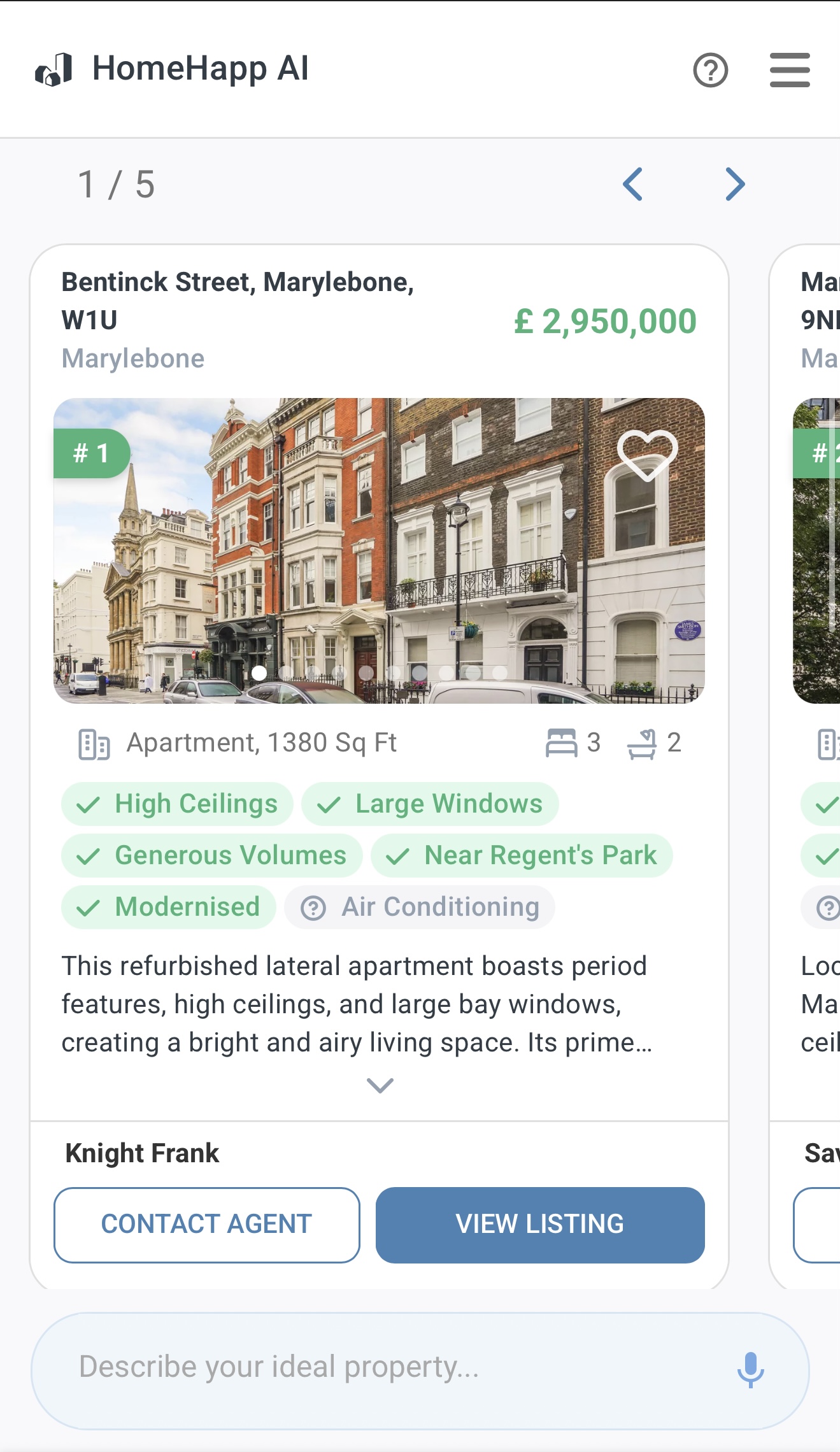
HomeHapp AI uses artificial intelligence to match buyers and renters with tailored high-end listings
Initially the engine, created by the tech businessman Utsav Goenka, is being aimed at the high-end market, covering homes costing from £1 million to £150 million.
Among its features are data points providing information on last-sold prices, ownership records, planning permissions, comparable listings and a home’s renovation history.
And it includes a real-time agent dashboard designed specifically for agents to help their clients, with daily updates on new listings, property price changes and homes added to the market and withdrawn. There are also market dashboards, which show price and rent heatmaps across London’s most expensive areas.
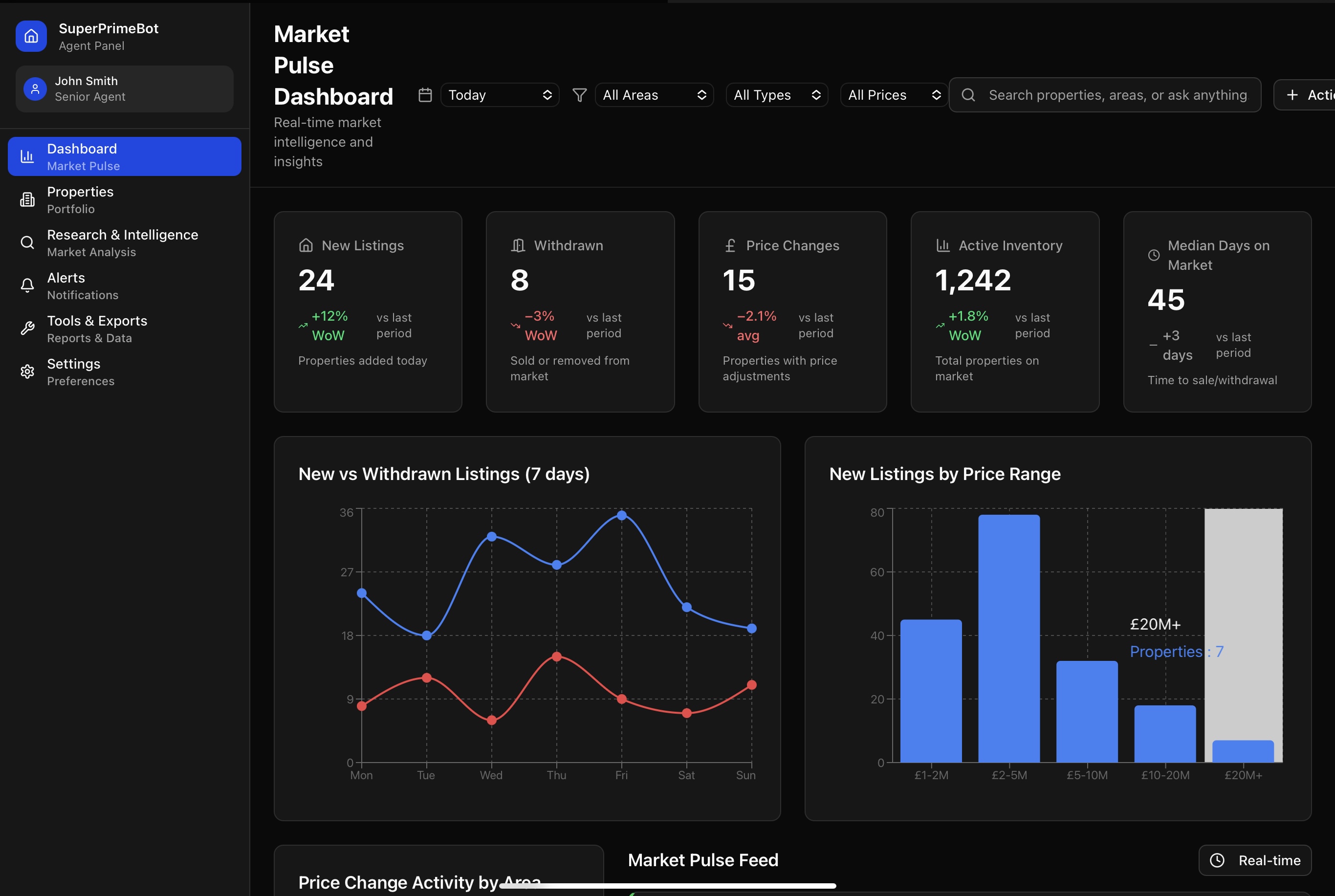
The real-time dashboard gives agents daily updates on listings, price changes and market trends
The app is free for buyers, renters, sellers and professionals, although a soon-to-be-launched premium service will come with a charge taken on a monthly or token basis, similar to AI models such as ChatGPT. A public launch is scheduled for later this month via HomeHapp.com, but it has already been rolled out to professionals.
Goenka says AI is becoming more sophisticated by the day. “AI is, for all practical purposes, just about two years old,” he says. “Treat it like a baby, you know, but it’s growing at the rate of getting ten years of wisdom every year, and knowledge every year. So AI is transforming itself all the time.”
• Would you trust an AI chatbot to find your next property?
Get to know the lay of the land
For nerds who like maps, the Know Your Area tool, developed by the Anglo-Norwegian internet entrepreneur Lars Erlandsen, is a treasure trove. It harvests a huge amount of data from providers including the Office for National Statistics, government data, the police, the British Geological Survey, the Care Quality Commission, Ofsted and the House of Commons to provide a gloriously detailed picture of any given area.
After you enter a postcode or place name, you’re presented with a map on which you can overlay data about local schools (including the latest Ofsted ratings, the number of pupils of each sex and the proportion of students who receive free school meals, for example); crime rates and the most prevalent types committed; and the location of prisons and power infrastructure such as windmills, solar panels, gas burners and nuclear facilities.
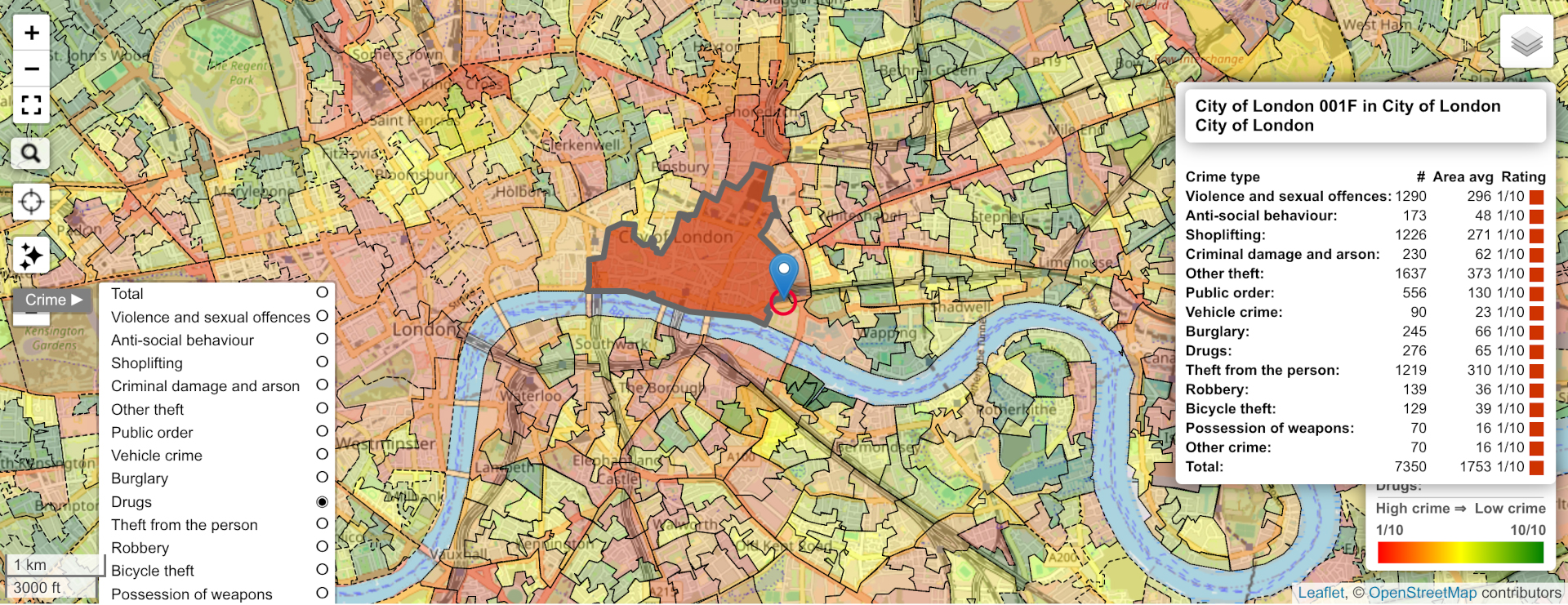
Know Your Area is a map-based tool that layers school ratings, crime stats, demographics and more onto any postcode
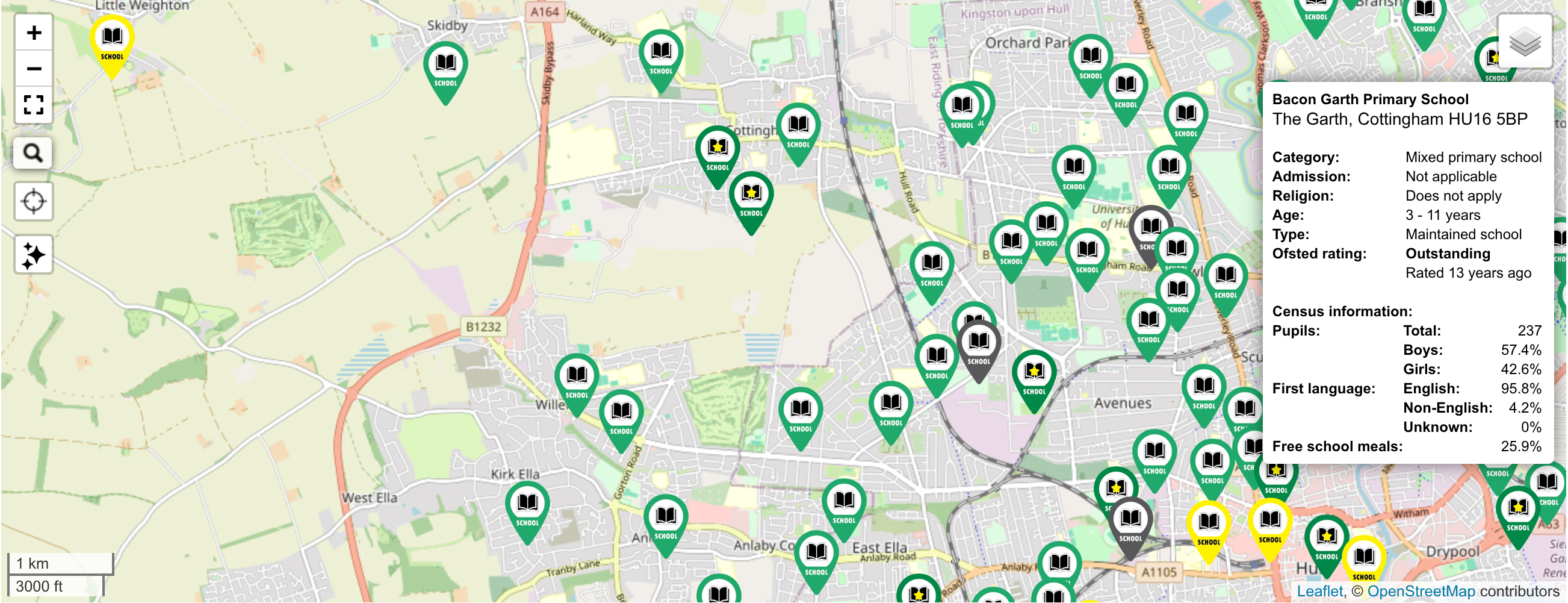
An overlay of school locations and Ofsted ratings
There is also the option to see a hyper-local demographic breakdown showing, for instance, the proportion of residents in any given area who are in a particular age bracket. “Cornwall is struggling with an aging population,” Erlandsen says as he gives a demonstration of the tool and shows me a map of a remote area of the county. The map also highlights flood risks, as gleaned from the Environment Agency, and there’s a plan to add landfill sites into the mix.
Users can also request an AI-generated, printable summary of any area they’re keen on. The app is available now at a cost of £4.99 a month.
Go on a detail deep-dive
In the past when sifting through property portals, you had to click on myriad drop-down menus to input preferences such as the number of bedrooms you need or how far you are willing to live from a central location before you could assess a list of the homes for sale that fit the bill. Some properties would be far from what you were looking for. Now, however, you can go much deeper with less work.
At the end of last year, Zoopla added an AI search free-form box to its app, allowing you to write specifically what you’re looking for in a property. It scours the web, providing results that are far more suitable and tailored to your needs, extracting from listing images and descriptions specified features such as a conservatory, say, or en suite bathroom or kitchen island.
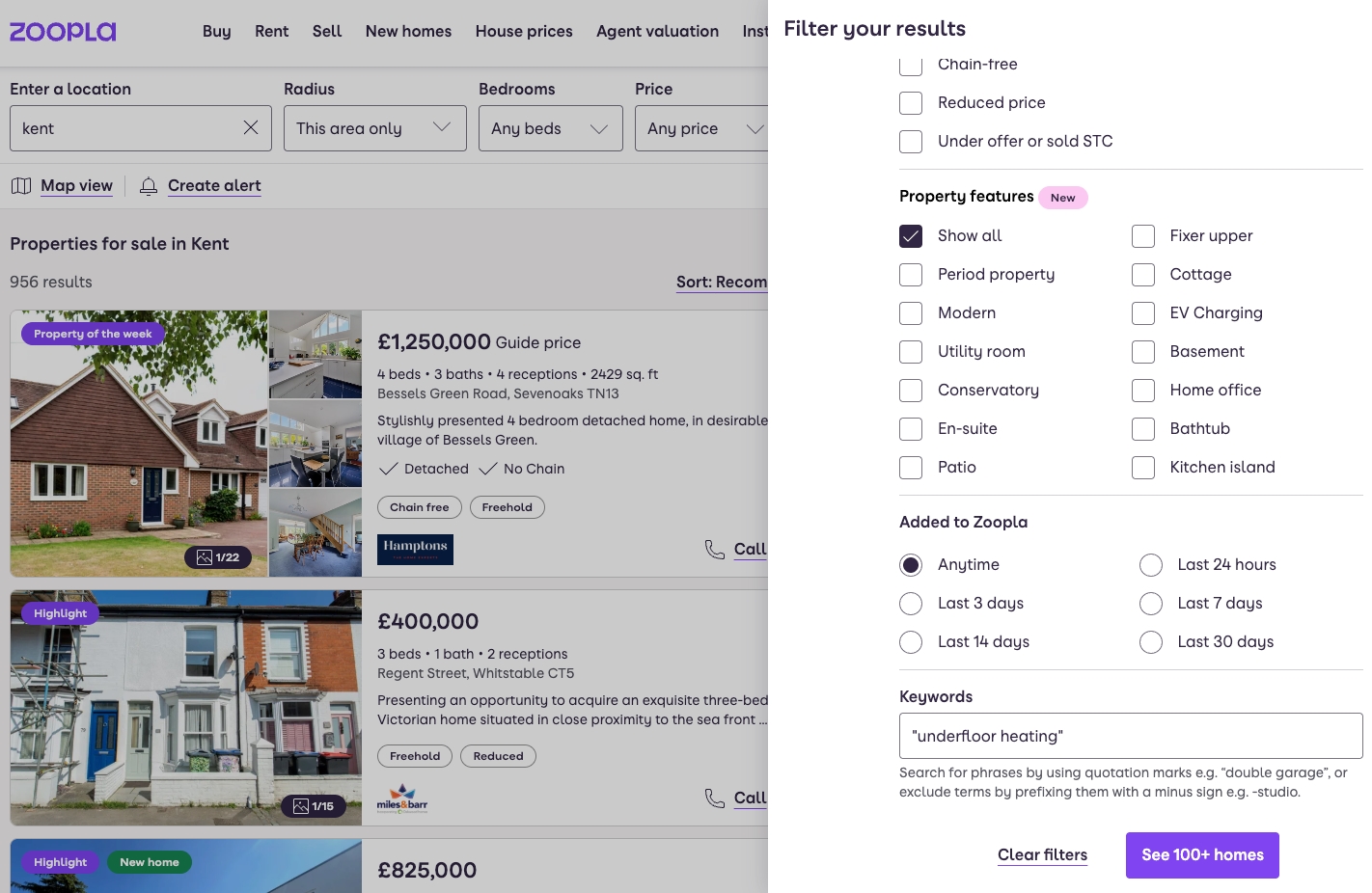
Zoopla has added an AI-powered free-form search box, letting users type in detailed requests and get tailored results
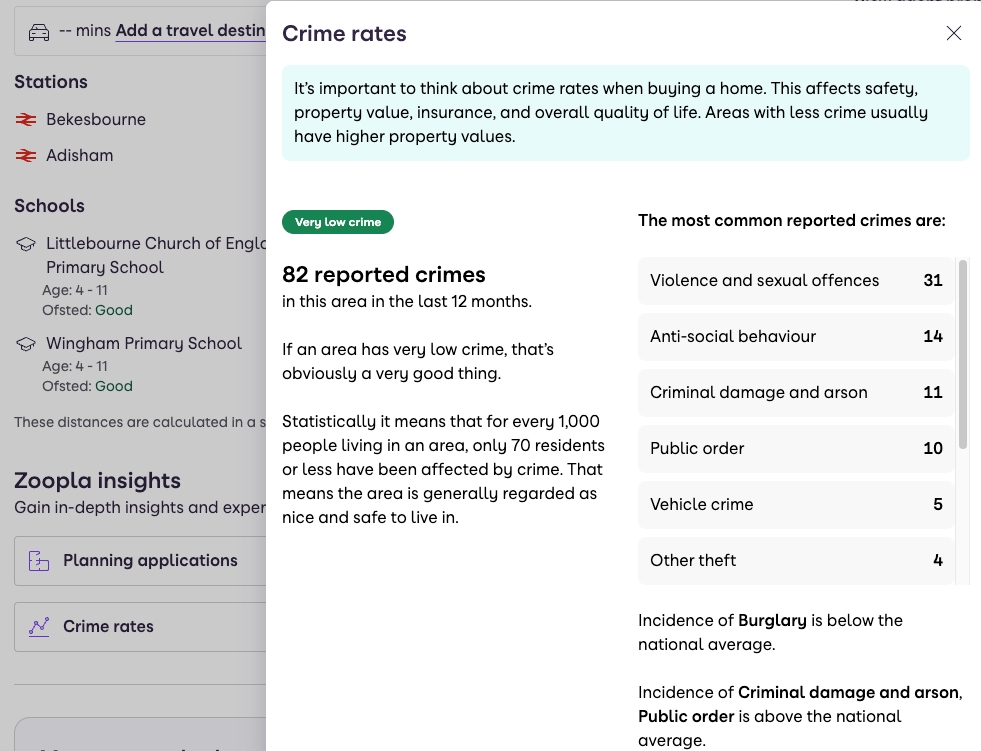
Zoopla’s AI now shows local crime rates, giving buyers clearer insight into neighbourhood safety
The company is now working on using the data better, to improve the quality of property recommendations it includes in emails and push alerts sent to would-be buyers.
“You’ll get an email from Zoopla and it will say, based upon what you look for, here’s a recommendation. At the moment it’s usually quite binary or parochial,” Rich Hayes, Zoopla’s chief operating officer, says. “Soon, everything will become far more personal, far more relevant. And I think that’s what we’re on the cusp of right now.”
• What I learnt … about using AI to help people move home
Try the chatbot number-cruncher
Only a few years ago chatbots were a source of fury, associated with useless customer service departments that didn’t bother to staff properly. These days, AI is making them vastly more effective.
The analytics company REalyse, which has been providing property data to some of Britain’s largest developers, rental building operators and financial services companies since 2016, is opening to ordinary homebuyers and sellers for the first time — and it has trained a sophisticated AI tool to help them navigate the numbers.
The aim is to provide highly specific AI search results and detailed valuation reports. All kinds of metrics are available, from yield and capital appreciation for landlords to schools, crime rates and the likelihood of achieving planning permission for homebuyers, plus the latest sales stats and facts for sellers.
At a demonstration created for The Times this year, the chatbot found pages of two-bedroom properties for sale, all with similarly timed commutes and descriptions of how dog/vegetarian/cycling-friendly the location and property were. Five years’ worth of data was also provided for sold property prices nearby and local planning information. Initially the tool will be available through realyse.com, a smartphone-friendly website, and there are plans for an app to follow.
